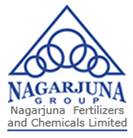SunflowerMarketing Introduction |
||
- Seeds of agricultural crops, whether produced by farmers or seed companies in special areas, follow many paths from the producer to the planter.
- The marketing of field crop seeds may be simple or complex, with one or several contributive functions.
- The simplest marketing cycle is completed when one farmer sells seeds to his or her neighbour. Millions of pounds of seed move in this way.
- Most seed distribution, however, calls for a more sophisticated chain of events.
- Much of the seed produced outside its major area of use is not sold directly and must enter the marketing channel.
- Seeds of field crops follow no normal route from producer to user, but most seed movement involves a grower, a wholesaler, and a retailer.
- The activities of each vary widely, depending on the item handled.
Quality Control During Marketing
- Both the customers' needs and the difficulty and cost involved must be taken into consideration when deciding upon the standards of seed quality required.
- The quality standards should have a real practical value for the farmer.
- Standards that are too high increase the cost of seed production unnecessarily, while those that are too low serve no useful purpose to the user.
- The desire to make claims for a high quality standard as an aid to sales usually conflicts with the realistic situation in relation to its actual needs, often necessitating a compromise between the two.
Following quality standards
- 1) Authenticity and purity of the cultivar
- 2) Analytical purity of the seed
- 3) Content of weed seeds (count per unit weight)
- 4) Germination capacity
- 5) Any other important quality parameter specific in the area where seed is to be marketed. e.g., disease resistance, freedom from seedborne disease, moisture content.
- 6) Germination capacity is the most difficult standard of quality to achieve because, unlike other quality parameters like cultivar purity, analytical purity, or weed seed content, germination , capacity can deteriorate during storage and transportation, especially when it is exposed to adverse climatic conditions.
- The health standards for seed are also difficult to establish. Standards of seed quality.
- Therefore, must represent a compromise between what is desirable or ideal and what is practical and achievable.
- The control of seed quality by the government during marketing is rather different from seed certification.
- While seed certification may be regarded as a service to seed growers.
- Providing expert advice on seed quality and cultivation, seed quality control during marketing may be likened to consumer protection legislation Minimum standards of quality should be specified for seed offered for sale, and seed sellers are required to ensure that the seed being sold is at least of this quality.
Factors which influence seed marketing
1. Clear-Cut Policy
- A clear-cut policy is necessary to develop the seed industry, defining the tasks and responsibilities of the official, semi-official, and private sectors to foster seed marketing on sound footing.
2. Availability of Well-Identified and Adapted Varieties
- Newly developed superior varieties of crops must be introduced in seed programs to promote seed trade.
3. Adequate Production, Storage, and Testing Facilities
- These are necessary to produce and maintain high-quality seeds in accordance with established standards, which are in turn vital to seed marketing.
4. Official Program
- Initiation and promotion of new varieties and hybrids by government agencies is important for seed trade development.
- The government should also provide market information to set targets and to regulate and control seed agencies and enterprises.
5. Demand Forecast
- Realistic assessment and targets of seed demand are necessary to put seed trade on a sound footing.
6. Market Intelligence
- ComPrehensive market intelligence to indicate needs of farmers. location of production areas, size of market demands, and marketing costs influence seed marketing.
7. Transport and Storage facilities
- Adequate storage arid transport arrangements must be ensured for timely supply of seeds to the end users.
8. Nature of Product
- Seeds need to be handled with care at all stages of its marketing chain. Seed marketing is seasonal; unsold seed stocks, if carried over, will bring losses.
9. Quality Control
- Effective, legally enforced control of seed quality as per internationally established standards are necessary to prevent unhealthy competition among seed companies and corporations.
10. Publicity
- The value, availability, and returns from certified seed need adequate publicity.
11. Financial Rewards
- Seed growers, seedsmen, and dealers need to be encouraged financially for their outstanding contributions to the seed trade.
Andhra pradesh
Sunflower
-
About sunflower
- History
- Sunflower Management


